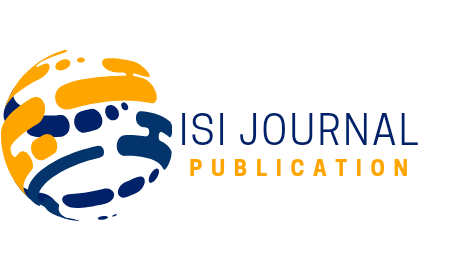The Role of Specialized Editors in Your Journal Publication Journey
Behind every strong research paper that reaches the stage of journal publication, there is not only rigorous research but also careful refinement of the written text. While most researchers dedicate their energy to collecting data, running analyses, and drawing conclusions, the process of transforming those findings into a polished manuscript ready for submission can be daunting. This is where the value of specialized editors becomes evident. Unlike general editors who focus only on language, specialized editors bring niche expertise in particular academic fields, offering subject area editing that aligns with the technical depth and disciplinary standards of the research.
The academic publishing world is highly competitive. Journals receive countless submissions, many of which are sound in research design but fall short in presentation. Reviewers and editors often prioritize clarity, structure, and alignment with disciplinary expectations. An author’s findings may be innovative, but if the manuscript lacks precision, coherence, or the appropriate academic tone, rejection is highly likely. Here, expert editors can bridge the gap, transforming a technically accurate paper into one that is also compelling, readable, and aligned with journal requirements.
The most significant benefit of subject area editing is that it ensures accuracy and depth in fields that require technical understanding. For instance, a biomedical paper requires familiarity with specialized terminology, citation of key references, and adherence to reporting standards such as CONSORT or PRISMA. A general language editor may improve grammar, but only an editor with a biomedical background can evaluate whether terms like “angiogenesis,” “cytokine signaling,” or “progression-free survival” are being used correctly. By bringing this niche expertise to the editing process, specialized editors not only correct errors but also elevate the overall credibility of the manuscript.
In addition to technical accuracy, specialized editors provide tailored feedback. This goes beyond simple corrections to language or punctuation. Instead, it includes guidance on whether the discussion adequately interprets the results, whether the introduction clearly sets up the research gap, or whether the conclusion properly addresses the study’s implications. Such feedback is especially valuable for early-career researchers who are still learning the conventions of scholarly communication. Expert editors essentially act as mentors, helping authors improve not only their manuscripts but also their overall academic writing skills.
Another advantage of involving specialized editors is that they understand the submission and review process intimately. Many editors are researchers themselves, with experience publishing in peer-reviewed journals. They know what journal reviewers look for, where authors typically fall short, and how to avoid common pitfalls. By applying this insider perspective, they ensure the manuscript stands up to rigorous peer review. This significantly improves the likelihood of successful journal publication, saving researchers from multiple rounds of rejection and resubmission.
The role of specialized editors becomes even more important for researchers writing in a second language. For many international scholars, English is the lingua franca of academia, but expressing complex ideas in English can be challenging. While grammar-checking tools can help with basic errors, they cannot capture nuances in scientific argumentation or ensure that the paper adheres to disciplinary norms. Specialized editors fill this gap, offering not only linguistic polish but also contextual understanding of how arguments should be structured in a particular field. This dual benefit—language accuracy and academic credibility—sets specialized editing apart from standard proofreading.
As the demand for polished academic manuscripts grows, many researchers are turning to online publication services. These services often employ teams of expert editors across a wide range of fields, enabling authors to be matched with someone who has direct experience in their subject area. For example, an economics paper may be reviewed by an editor with a PhD in economics, while a molecular biology manuscript is handled by a life sciences expert. Such matching ensures that the editing process is not only linguistically accurate but also intellectually rigorous.
The collaboration between authors and specialized editors should be seen as a partnership. Authors bring the originality of the research, while editors bring the skill to present it effectively. Together, they produce a manuscript that communicates the research in the clearest and most impactful way possible. Importantly, this partnership does not diminish the researcher’s authorship or intellectual ownership; rather, it strengthens the paper’s ability to withstand scrutiny in peer review.
In practical terms, specialized editors also help streamline the timeline to publication. By addressing issues of coherence, clarity, and formatting before submission, they reduce the likelihood of receiving “revise and resubmit” decisions based on presentation flaws. Faster acceptance means researchers can share their findings with the academic community more quickly, boosting their visibility and academic reputation. In fields where timely publication is crucial—such as clinical research or fast-moving technological studies—this efficiency can be particularly valuable.
In practical terms, specialized editors also help streamline the timeline to publication. By addressing issues of coherence, clarity, and formatting before submission, they reduce the likelihood of receiving “revise and resubmit” decisions based on presentation flaws. Faster acceptance means researchers can share their findings with the academic community more quickly, boosting their visibility and academic reputation. In fields where timely publication is crucial—such as clinical research or fast-moving technological studies—this efficiency can be particularly valuable.
In conclusion, the role of specialized editors in the journal publication journey cannot be overstated. By offering subject area editing, providing tailored feedback, and applying their niche expertise, expert editors ensure that manuscripts are not only linguistically accurate but also academically persuasive. For many researchers, partnering with professional online publication services provides access to this valuable expertise, giving their manuscripts the best chance of acceptance in competitive journals. Ultimately, specialized editors help transform research findings into published knowledge—bridging the gap between discovery and dissemination, and guiding authors toward lasting academic impact.
